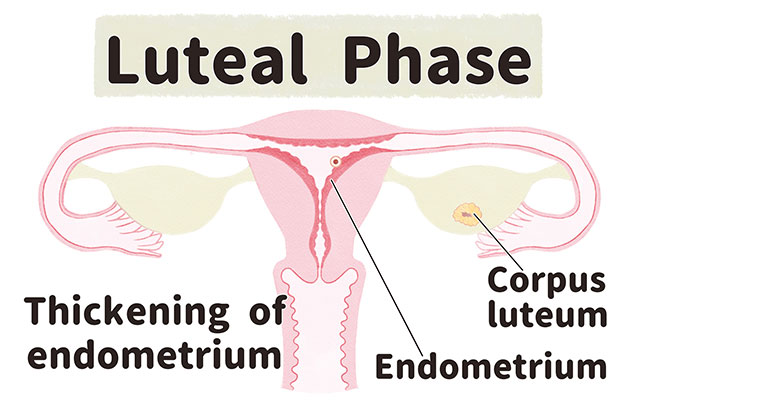Updated by the Progyny Clinical Team — June 2025
The luteal phase occurs during the second half of the menstrual cycle, after ovulation has occurred. It usually starts around Day 15 of your cycle, with Day 1 being the first day of the menstrual period.
For most people, the luteal phase is about 14 days long.
At the start of it, the follicle that released the egg turns into the corpus luteum, a small yellow structure. This structure produces progesterone and estrogen. These hormones prepare the uterine lining for the possibility of pregnancy implantation.
When sperm fertilizes an egg, the resulting embryo travels down the fallopian tube and implants in the uterus several days after ovulation. The early embryo begins to make human chorionic gonadotropin, which maintains the corpus luteum and progesterone production. The corpus luteum will sustain the uterine lining and pregnancy until the placenta develops.
If the embryo does not implant, the corpus luteum deteriorates, and progesterone levels will fall. The endometrial lining is stabilized by progesterone, so when it falls, the uterus will start to shed its lining, starting menstruation.
If you have questions, Progyny is here for you. Please contact your Progyny Care Advocate for support.
Disclaimer: The information provided by Progyny is for educational purposes only and is not medical advice. Always consult a qualified healthcare provider for medical guidance.
